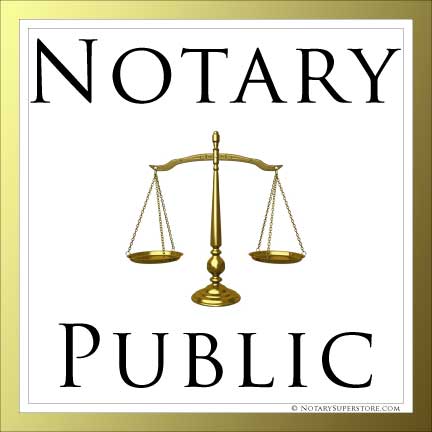Deceased Estate Administration: Managing Possessions and Affairs After Passing
Deceased Estate Administration: Managing Possessions and Affairs After Passing
Blog Article
Demystifying Notarial Job: Simplifying the Role and Significance of Notaries
In the elaborate web of legal documents and verification, notaries stand as pillars of assurance and credibility. Their role, usually shrouded in secret for lots of, brings significant weight in guaranteeing the credibility and stability of vital papers. As guardians of legality and reality, notaries play a crucial part in our culture, yet their job is not constantly totally recognized. By deciphering the complexities surrounding notarial techniques and shedding light on the importance of their acts, a more clear understanding arises of the crucial duty notaries play in supporting the textile of legal and lawful agreements.
The Background of Notarial Work
The history of notarial work days back to ancient worlds, where scribes played an important function in recording crucial info and validating documents. This led to the growth of notaries, people selected by the state to act as impartial witnesses in legal issues.
Throughout the Middle Ages, notaries gained importance in Europe, with their functions increasing to include composing lawful papers, certifying trademarks, and preserving documents. The increase of international trade further emphasized the value of notarial operate in validating agreements and agreements throughout boundaries.
In the contemporary age, notaries proceed to play a crucial duty in lawful and service transactions by verifying identities, verifying the credibility of files, and protecting against scams. Their role in accrediting the validity of contracts includes a layer of protection and depend the ever-evolving landscape of business and law.

Responsibilities and Duties of Notaries
Notaries play a vital function in validating the authenticity of files and the identification of signatures. One of their primary duties is to witness the finalizing of important documents, such as agreements, deeds, and wills, to guarantee that all parties are entering right into agreements intentionally and willingly.
Additionally, notaries are charged with administering affirmations and oaths, which are vital in lawful proceedings and the execution of testimonies. They license duplicates of initial files, offering assurance to organizations that the duplicates are true replicas of the originals. Notaries must maintain exact documents of all transactions they supervise to make sure openness and liability. Generally, the tasks and duties of notaries are essential in safeguarding the honesty and legality of different records and deals.
Notarial Certificates and Signatures
Exemplifying thorough interest to detail, notarial certificates and trademarks work as important components in verifying the credibility of legal records. Notarial certificates generally have vital information such as the day of registration, the names of the signatories, a description of the document, and the notary's official seal. These certifications give a clear document of the notarial act, making sure that the document can be quickly recognized and mapped back to the his comment is here notary that looked after the procedure.
Signatures play a crucial duty in notarial job, as they represent the arrangement and consent of the parties entailed. Notaries thoroughly witness the signing of documents to confirm the identification of the signatures and verify that they are authorizing of their very own free will. By attaching their main seal and trademark to the paper, notaries certify that the needed procedures have been followed and that the file is legitimate and enforceable.
Fundamentally, notarial certificates and signatures are the trademark of authenticity in legal deals, providing guarantee to all events involved that the documents are legitimate and binding.
Importance of Notarial Acts

Notarization Process Clarified
Discussing the notarization process provides clarity on the important steps associated with verifying lawful files. The registration procedure usually starts with the specific providing the paper to a notary public. The notary then verifies the endorser's identity with acceptable identification techniques. Once the identification is verified, the notary makes certain that the private authorizing the paper does so willingly and with no threat.

Conclusion

Notarial certifications generally contain vital info such as the date of directory registration, the names of the signatures, a summary of the record, and the notary's official seal. These certificates give a clear document of the notarial act, making certain that the paper can be quickly recognized and traced back to the notary who oversaw the process.
By affixing their official seal and trademark to the paper, notaries certify that the necessary treatments have actually been adhered to and that the document is legitimate and enforceable.
By confirming the identification of the notaries, confirming their readiness to get in right into the contract, and accrediting the day and location of the signing, notaries play a critical role in supporting the validity of legal papers.After the paper is signed, the notary will certainly fasten their main seal or stamp onto the document.
Report this page